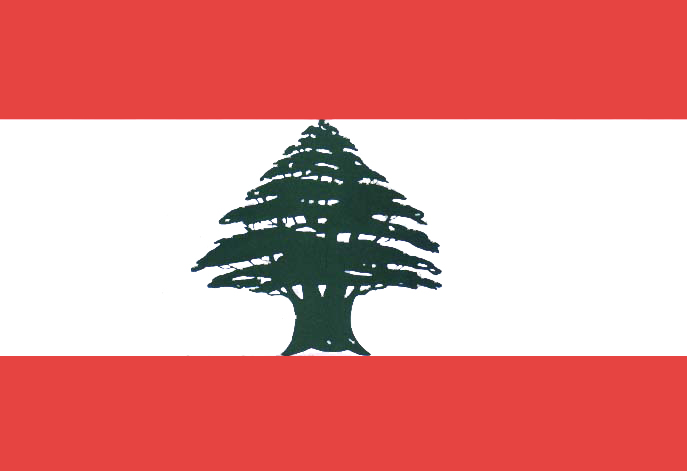Lebanon awaits decisive parliamentary election
 Beirut - The complexity of the Lebanese electoral system, coupled with the lack of reliable, independent polls, make it difficult to predict the outcome of Sunday's parliamentary vote.
Beirut - The complexity of the Lebanese electoral system, coupled with the lack of reliable, independent polls, make it difficult to predict the outcome of Sunday's parliamentary vote.
But what is certain is that it will be a tight race between the Hezbollah-led opposition and the Western-backed majority, and that the results will have consequences for the Middle East as a whole.
The outcome will not only affect Lebanon's domestic political situation, but it will also play a significant role in shaping the dynamics (of) the Middle East region," political analyst Saad Kiwan told the German Press Agency dpa.
The last parliamentary election was held in 2005, shortly after the assassination of former Lebanese prime minister Rafik Hariri. In that election, the anti-Syrian coalition the so-called March 14 Alliance led by Saad Hariri, son of the late Rafik, managed to win 72 seats.
The Syrian-Iranian backed opposition coalition, led by Hezbollah and dubbed the March 8 Alliance won 35 seats, while the Christian bloc led by General Michel Aoun captured 21 seats.
Since 2005, four members of the March 14 Alliance have been assassinated, bringing their number of seats down to 68. The March 8 Alliance and Aoun's bloc joined forces in February 2006, providing the opposition with 56 seats.
Like other observers in Lebanon, Kiwan believes that the true test lies in the post-election politics." Following the vote, whoever wins will be tasked with choosing a new prime minister and forming a new cabinet - choices which have often led to instability and violence in the past.
"There is no guarantee that it will not happen again," Kiwan added.
So far both the Hariri alliance and Hezbollah are anticipating victory.
The opposition will win the election," the head of Hezbollah's parliamentary bloc, Mohammad Raad, told dpa.
Raad added that the upcoming vote will determine the "position, role and identity of Lebanon, "stressing that the opposition is committed to "preserve Lebanon and its strong position in the region."
"The Lebanese are facing two choices, either reconciliation with the enemy (Israel), or preserving a strong Lebanon," Raad said.
Hezbollah has, with some justification, positioned itself as the only force in Lebanon capable of "resistance" of Israeli military incursions, such as that in 2006. Hariri's majority movement, however, blamed Hezbollah for dragging Lebanon into an unnecessary war.
But Hezbollah observer Amal Saad-Ghorayeb said that Hezbollah is already evaluating the dangers of winning.
Ghorayeb believes that a victory for Hezbollah would certainly mean changes that would dismay the West and Israel, and many fear isolation, such as has affected Islamist movement Hamas in Palestine.
Okaab Sakr, a political analyst and candidate running for the Hariri-led alliance in the Bekaa Valley, told dpa, "if the opposition win, then Iran and Syria will succeed in adding Lebanon to their bloc," he said.
According to Ghorayeb, however, Hezbollah leaders are aware that they cannot rule a country like Lebanon alone. The movement's leader, Sheikh Hassan Nasrallah, has said that it would be "in the interest of Lebanon and its stability that there is understanding and partnership among Lebanese in running their country's affairs."
Saad Hariri has said a Hezbollah win would create for Lebanon "very difficult times," threatening its economic growth. He has also said that he will not participate in a unity government with Hezbollah.
MPs running on Hariri's electoral lists have stressed that the their alliance has good prospects in the upcoming election, and asserted that the majority of Lebanese do not want Syrian and Iranian influence on their country.
The (Hariri alliance) will win the election because the Lebanese believe in sovereignty and democracy and with Syria and Iran (involved) this cannot be achieved," said Sunni MP Ammar Houri, who is a member of the current Hariri bloc.
Aware of building tensions, US Secretary of State Hillary Rodham Clinton paid an unexpected visit to Lebanon earlier this month.
Clinton stressed after talks with Lebanese leaders - not including Hezbollah - that her country supports the voices of moderation and the Lebanese Army as the sole protector of Lebanon."
US Ambassador Michele Sison has warned that American relations with Lebanon - and future US aid - "will be evaluated in the context of the new government's policies and statements," after the election results are out.
Since 2006, the United States has committed over a billion dollars to the Western-backed government, including 410 million dollars for the country's security forces. (dpa)